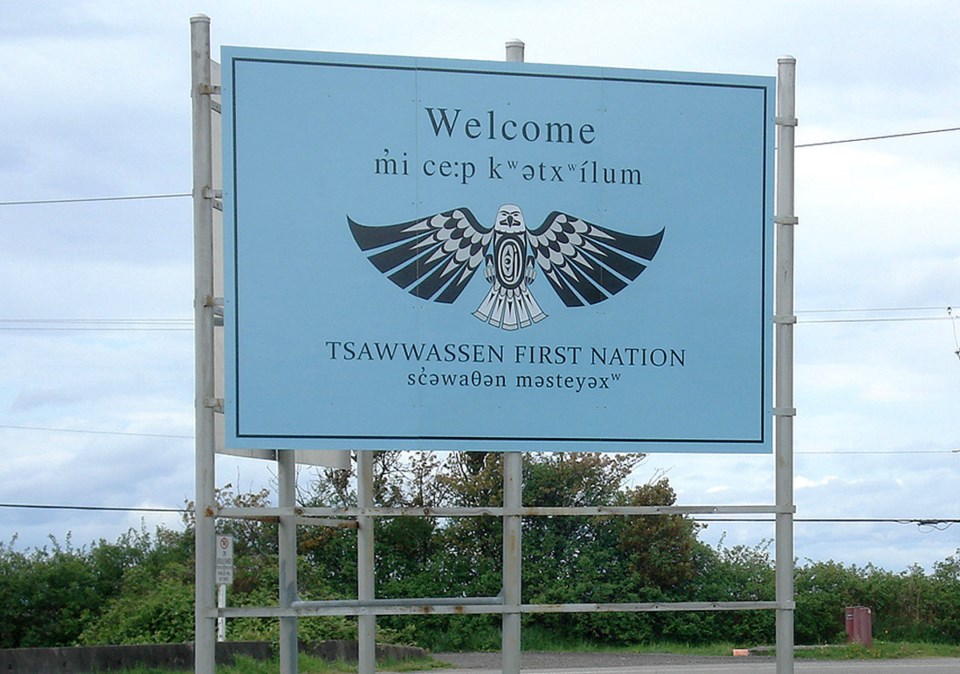Tsawwassen First Nation members are holding a community walk and rally Wednesday to bring awareness of the devastation brought on by the opioid crises, calling for more effective solutions.
Non-TFN members wishing to come out in support, including anyone impacted by the drug problem, are also invited to participate with Elders and youth in the event, recognizing COVID-19 protocols.
Masks will be handed out.
Members will gather outside the TFN administration offices on Tsawwassen Drive at 6 p.m. and walk to the corner of Blue Heron Way and Salish Sea Drive where they plan to hand out information to passing traffic until around 10 p.m., said Laura Baird, one of the organizers who helped put together the Facebook page TFN Community Members for Safety and Empowerment.
Noting the event is not a TFN government sponsored event, Baird said this year alone saw four members suffer overdoses with one fatality.
It’s unacceptable for any community, and more so for one with such a small membership as the TFN, she said. “We’re looking to raise awareness that drug traffickers and those that are preying on and bringing drugs into our community are not welcome.
“We can only depend on the police so much. They come in and do their jobs and arrest the dealers whenever they can but, ultimately, we need to raise awareness about the crises as well and we need a process here that works better than what we have. When the police go away, there’s more dealers who want to come in and fill their shoes."
Baird also noted one factor is that even more dangerous, poorer quality drugs are being produced and distributed by dealers as a result of the pandemic.
The Facebook page description of the event includes, “If you are here to drop off drugs – please turn around and leave.”
According to a report released last year, Rural and Indigenous Overdose Action Exchange, available for viewing on the B.C. Centre for Disease Control website, with the data that is available in B.C., First Nations people experienced a 21 per cent increase in overdose deaths between 2017 and 2018.
In 2018, 12.8 per cent of all overdose deaths were among First Nations people.
That’s 4.2 times higher than the rate observed among other residents who experience overdose deaths. It is having an impact on individuals and communities alike, particularly on First Nations women, who compared to non-Indigenous women are at higher risk of an overdose death (39 per cent for First Nations women and 17 per cent for non-First Nations women).
The report notes the widening of the overdose death gap can be attributed largely to four main areas: racism and stigma, access to treatment, social determinants of health and intergenerational trauma.
For more information about TFN Community Members for Safety and Empowerment on Facebook, look up @TFNSAFEFAMILES.



